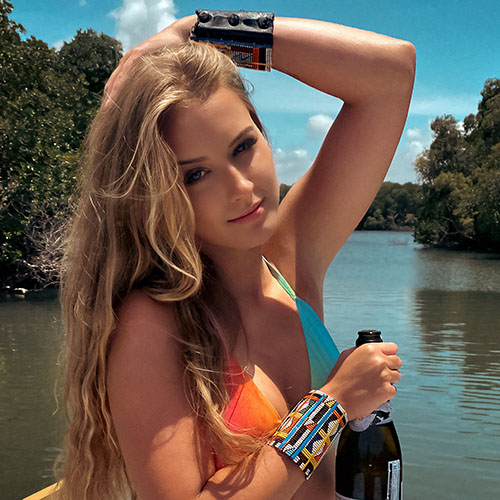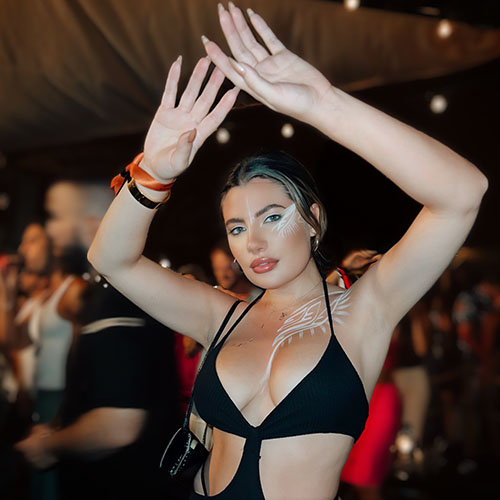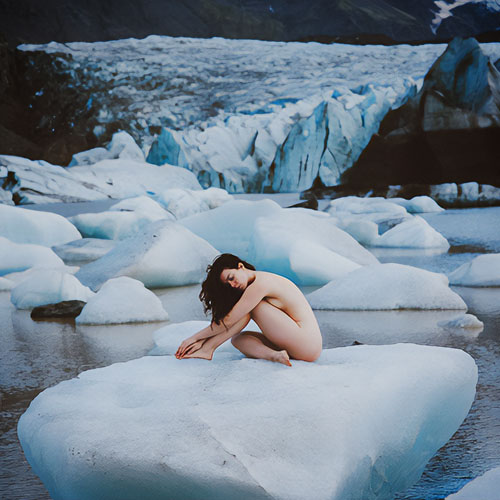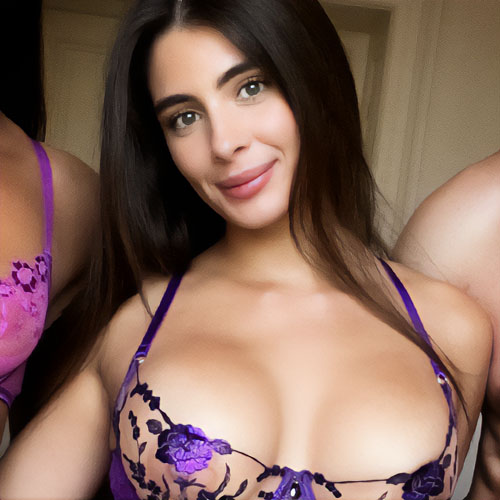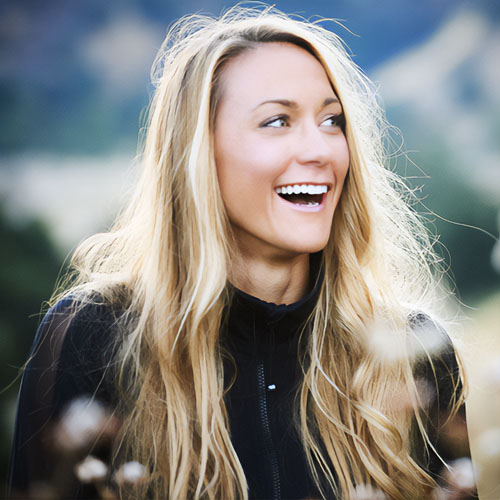A meeting with one of the most famous Mexican influencers in recent years, we talked about her career, the obstacles and how she has come out ahead to find a better path.
Carolina Diaz: Life is a Risk
Carolina Díaz was born in Tijuana, where she has lived her entire life. Ever since she was a child, Carolina claims she has been a self-conscious, reserved person. Of course Carolina has another side too, that of the girl who made mischief with her family. Still, relating her hidden side to the world of entertainment, social networks and content generation did not come easily. “It was hard for me to imagine being in front of a camera,” she explains to us.
Although at first she thought of studying medicine, but something kept drawing her attention to being behind a production. “I got into communication sciences, I said: ‘OK. I have many aspects that I can dedicate myself to, photography, radio and make my own documentary or short film.’”
Strengthened wiith that behind the camera inertia, Carolina continued her career at the University of the California. Then, on one fateful occasion while doing a professional internship with a Televisa program called Conexión TV, the producers asked Carolina to replace the host who had failed to arrive. It took some convincing, but after refusing several times, Carolina agreed to help. As it turned out, Carolina performed better than anyone expected.
“There are people who activate a chip in front of the camera and the nerve goes away, the emotions go away and everything flows. And I feel that it is something that continually happens to me, it really was a stroke of luck that they considered me to be in front of cameras and from there many things began.”
Later, after finishing her degree and giving up a temporary job at a casino, Carolina decided to experiment with something related to her career. She decided to approach it as studiously as possible, via a media agency, and here she acquired some technical skills that would help her adapt more smoothly to a professional environment. Stuck over in the administrative part, however, she began to feel dissatisfied. This lead her to explore other possibilities that would take her to Badabun, a space that helped her take even bigger steps, this time as a public figure.
“I searched the networks and saw that Badabun was looking for staff. I sent a request and they called me.”
Caro explains that she was very nervous during the job interview. “I arrived and they asked me if I knew how to use Photoshop, edit videos and do production.”
Between several more questions and a convincing attitude of wanting to have the job, she stayed, in the Memes department. Yes, from Memes. “We were easily 10 people in that area. There was a time when we were 120 or 130 people, a very large number. So, we had to make memes for Badabun, for another page and for influencers”.
Recognizing the evolution of the digital world, Badabun had decided to bet on the video format. Once again, the challenge of being in front of the camera awaited Caro [apparently her Pet name, as it were – Ed.].
”They chose me for a project, because they thought I was very funny and had charisma.”
She worked again and again, when soon her followers began to ask about her role, noting that she did not appear in company videos. “Eventually it got to a point where they asked me if I wanted to go out in videos and leave the meme department, but they didn’t assure me that it would work. My salary was going to change, not to mention it was nerve-racking to take risks. Ultimately to that I said, ’life is always a risk’ and I did it.”
Carolina’s work scheme did indeed seem risky, so she tried to account for that. She proposed that her commitment would be to record videos for the company, and in exchange Badabun would provide her with the equipment to make personal content. One cannot measure surprises, though, and she soon discovered she was too young to really understand the sheer volume networks handled.
“I had to take them about 30 videos a week, and with that I only had the opportunity to record two videos for my own channel.”
The experience led Caro to realize that while the exhibition was very good, there were also issues that she could not agree with, including overwork, psychological abuse and even bullying.
She confesses to us: “There was everything bad — this is very common in Mexico — there was a lot of abuse of power. There was harassment and even homophobic comments. … Unfortunately, for legal reasons I withdrew from those complaints, but our country sucks on that. No matter how much you want to fix things, and no matter how much you try, if you want to expose these negative situations, they will always put obstacles in your way.”
In the end, Caro decided to take a path apart from Badabun, “The detachment process was complicated, but I made a very strong union with my work team, which was my editor, the person who records me. and my friend who helped me produce. I mean, we already had a team, and if they were with me, I had to continue with the videos.” The challenge was to continue making content and detach, at least little by little, from the Badabun image.
After a year, that image faded, and she began to gain recognition without being so tied to the past. At present, she is also trying her hand at fashion, with a clothing line still in the creative process of being launched. And her concerns grow, “I would like to be in a reality show, and, if I’m honest, I want to get rid of making videos for networks a bit, I’m doing casting for series, I took acting classes, and I hope the time comes when I no longer dedicate myself to make videos. Still, I recognize it is a process, little by little.”
In the same way, Carolina plans to make one of her dreams come true, that of being behind the camera producing and directing a documentary. “If there is a single issue that catches my attention, it would be white slavery in Tijuana, I know it is very sensitive, but being here you easily see it every 7 or 8 streets, and for many people it has already become something normal; It makes me feel very helpless, but at the same time it makes me want to report on it.”
Caro Díaz traveled to Mexico City to carry out this photo session, where Penthouse was able to get to know her a little better. In her personal sphere, Carolina constantly works on her safety and puts effort into the process of getting to know herself more. Regarding the photo session for Penthouse, she confesses, “It was a challenge, because I had never imagined seeing myself like this. For me it was so artistic, and at the same time having the confidence to say, ‘Yes, I can be in these types of photos.’ … Now, I feel well. It is no longer something that scares me. I consider it a really cool experience, and — perhaps strangely — it helps one feel a little more secure. It’s something I could definitely do again.”
Carolina Diaz originally appeared in the May/June 2022 issue of Penthouse México. We did the best we could with that translation from the original Spanish, but for those native — or at least more skilled in reading Spanish — friends, we have included the original version below. If we made any horrible mistakes, please let us know. We’d rather be embarrassed and learn (and be able to correct the error) than just put on blinders and plunge forth. Y’know, as it were.
La Vida es un Riesgo
Carolina Díaz nació en Tijuana, donde ha vivido toda su vida. Ella recuerda que desde niña ha sido una persona cohibida, reservada. Sin embargo, tenía otra cara, la de la niña que le hacía travesuras a su familia. Por ello, relacionarla con el mundo del espectáculo, las redes sociales y la generación de contenido resultaba difícil de creer. “Me costaba imaginarme estar frente a una cámara”, nos explica.
Aunque en un inicio pensó estudiar medicina, había algo en ella que le llamaba la atención sobre estar detrás de una producción. “Me metí a ciencias de la comunicación, dije: ‘ok, tengo muchas vertientes a las que me puedo dedicar, fotografía, radio y hacer mi propio documental o cortometraje’”. Con esa inercia de estar tras de cámara, siguió su carrera en la Universidad de las Californias, hasta que en una ocasión haciendo prácticas profesionales en un programa de Televisa llamado Conexión TV, le pidieron suplir a la conductora porque no había llegado. Ella, después de rehusarse varias veces, aceptó apoyar.
Por fortuna, salió mejor de lo que ella y los demás esperaban. “Habemos personas que se nos activa un chip frente a cámara y el nervio se va, las emociones se van y todo fluye.
Y siento que es algo que continuamente me pasa, realmente fue un golpe de suerte que me consideraran para estar frente a cámaras y de ahí comenzaron muchas cosas”.
Tiempo adelante, después de culminar su carrera y renunciar a un trabajo temporal en un casino, decidió experimentar en algo que estuviera relacionado con su carrera. Fue así como llegó a una agencia de medios, donde adquirió algunos aprendizajes de la industria que le ayudarían a adaptarse mejor. Sin embargo, como estaba en la parte administrativa, comenzó a sentirse insatisfecha, por lo que exploró otras posibilidades que la llevarían a Badabun, espacio que le ayudó a dar pasos más grandes, pero como figura pública. “Busqué en redes y vi que Badabun estaba buscando personal. Mandé solicitud y me llamaron”.
Caro nos explica que estaba muy nerviosa durante la entrevista de trabajo. “Llegué y me preguntaron si sabía usar Photoshop, editar videos y hacer producción”. Entre varias preguntas más y una actitud convincente de querer tener el puesto, se quedó, en el departamento de Memes. Sí, de Memes. “Éramos fácil 10 personas en esa área. Hubo un tiempo en que éramos 120 o 130 personas, una cantidad muy grande. Entonces, nos tocaba hacer memes para Badabun, para otra página y para influencers”. Con la evolución del mundo digital, Badabun decidió apostar por el formato de videos.
Nuevamente, a Caro le esperaba el reto de estar frente a cámara: “me pasó que no fue alguien y me pusieron a mí, porque creían que yo era muy chistosa y tenía carisma”.
Volvió a funcionar, los seguidores comenzaron a preguntar por sus participaciones cuando no salía en algún video. “Hasta que llegó un punto donde me preguntaron si ya quería salir en videos y dejar el departamento de memes, pero no me aseguraban que iba a funcionar, mi salario iba a cambiar y entonces era un nervio arriesgarme. Total que dije: ‘la vida es un riesgo’ y lo hice”.
El esquema de trabajo era riesgoso, le propusieron que su compromiso sería grabar videos para la empresa, y a cambio Badabun le facilitaría el equipo para hacer contenido personal. “Entonces, como que uno no dimensiona, en ese tiempo estaba muy polluela para saber cuánto se manejaba en redes. Yo les tenía que sacar como 30 videos a la semana, y con eso ya tenía la oportunidad de poder grabar dos videos en mi canal”.
La experiencia llevó a Caro a darse cuenta de que si bien la exposición era muy buena, también había temas con los que no podía estar de acuerdo, entre ellos el exceso de trabajo, maltrato psicológico e incluso acoso. Ella nos confiesa: “Había de todo, esto es
muy común en México, había mucho abuso de poder, había acoso y hasta comentarios homofóbicos… Lamentablemente, por cuestiones legales yo me retiré de ese tema, pero nuestro país es una mierda en eso, por más que quieras arreglar las cosas y por más que quieras exponer esa situación, siempre te van a poner trabas en todo”.
Al final, Caro decidió tomar camino aparte de Badabun, “el proceso de desapego estuvo complicado, pero hice una unión muy fuerte con mi equipo de trabajo que era mi editora,
la persona que me graba y mi amigo que me ayudaba producir; o sea, ya teníamos un equipo, y si ellos estaban conmigo, yo tenía que seguir con los videos”. El reto consistía en continuar haciendo contenido y desligarse, al menos poco a poco, de la imagen de Badabun.
Después de un año, esa imagen se fue desvaneciendo y comenzó a lograr ser reconocida sin estar tan ligada al pasado. En el presente, también está probando suerte en la moda, con una línea de ropa, la cual está en proceso creativo para ser lanzada. Y sus inquietudes crecen, “me gustaría estar en un reality y, soy honesta, quiero desprenderme un poco de hacer vídeos para redes, estoy haciendo casting para series, tomé clases de actuación, y espero que llegue el momento donde ya no me dedique a hacer videos, pero es un proceso, poco a poco”.
De la misma manera, piensa llevar a la realidad uno de sus sueños, el de estar detrás de cámara produciendo y dirigiendo un documental. “Hay un tema que me llama la atención, la trata de blancas en Tijuana, sé que es muy sensible, pero estando aquí fácil lo ves cada 7 u 8 calles, y para la gente ya es algo normal; me da mucha impotencia, pero a la vez me dan ganas de informar sobre eso”.
Caro Díaz viajó a la Ciudad de México para realizar esta sesión de fotos, donde pudimos conocerla un poco más. En el ámbito personal, ella se reconoce como alguien que constantemente trabaja en su seguridad y está en proceso de conocerse más. Y sobre la sesión de fotos para Penthouse, nos confiesa: fue un reto, porque nunca me había imaginado verme así, para mí fue tan artístico y a la vez tener una seguridad de decir: ‘sí puedo salir en este tipo de fotos, me siento bien, no es algo que me espanta’. Siento que fue una experiencia muy chida y ayuda a una a sentirse un poco más segura. Es algo que definitivamente podría hacerlo otra vez”.
They do like to credit a lot of people in that magazine, so we see zero reason we should not do so here. Photography by Ojo de Paz. Makeup and hairstyle by Karla Adonai. The location was the Quinta Soledad Cultural Center. And last, but never, ever least in our world of journalism love, Aaron Zavaleta provided the interview duties. … Now you’d think they would have included a link for Carolina Diaz too, but they did not. Remember how she was talking about the culture in her country? We, on the other hand , have never been accused of having culture, so we found her for you.























